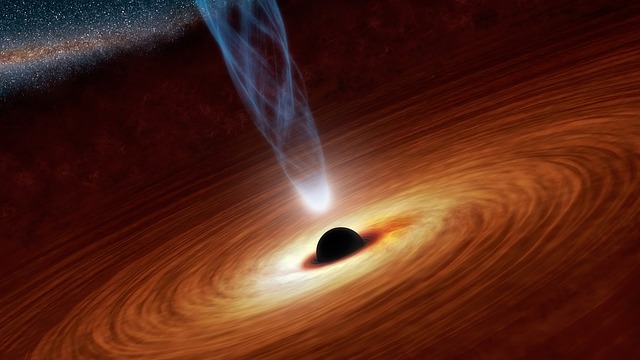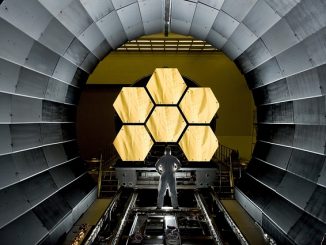
First, there was the Variable Light Theory — a testable theory that suggests the speed of light might not always have been the constant figure that we have all accepted as fact since Einstein’s General Relativity Theory came into the picture.
And now, with the discovery of gravitational waves, another challenge to Einstein’s theory is brewing. It’s actually quite ironic — on one end, it confirms Einstein’s prediction that merging of black holes produce ripples (gravitational waves) in space-time. But on the other end, it also shows that his theory is not consistent with what happens at a black hole’s event horizon — what’s referred to as the ‘point of no return’ or simply its boundary.
According to Einstein’s theory, anything that falls into a black hole (equivalent to crossing the event horizon) disappears completely and leaves no trace at all. That includes light, which is why it’s called a ‘black’ hole. In line with this, the event horizon will be completely invisible as well, and anything that crosses it will not even know it crossed anything. It will simply fall into what is practically an abyss of nothingness and cease to exist.
In contrast, quantum mechanics physicists believe that while matter that falls into a black hole gets completely swallowed by it, it will leave evidence of itself on the outside or the edge of the black hole. In this scenario, the event horizon will not be completely invisible. Rather, it will be like some kind of wall. It can either be a ring of high-energy matter that will burn up anything that passes through (firewall hypothesis), or a ring of low energy quantum particles that stores traces of everything it swallows up (Stephen Hawking’s ‘Soft Hair on Black Holes’ theory).
So which one is correct? No one really knows for sure. But now we might have better means to find out.
First discovered in February of this year, information from the Laser Interferometer Gravitational-Wave Observatory (LIGO) revealed the presence of ‘echoes’ that suggests a part of Einstein’s prediction was inaccurate – waves shouldn’t have been detected because isn’t a black hole supposed to make matter completely disappear? Interestingly, two other gravitational wave events were detected since then. And now the implications can’t simply be dismissed.
After poring through LIGO’s data, a team of physicists (Jahed Abedi, Niayesh Afshordi and Hannah Dykaar) are claiming that the gravitational waves they discovered could directly contradict Einstein – that his Theory of Relativity might not actually be ‘General’ but ‘Specific’. Why? Because it doesn’t hold up in extreme scenarios, specifically when it comes to black holes.
So far, the team’s findings have been published on arXiv.org. It’s only a beginning and would still require further studies and deeper investigation before being credible enough to be submitted for peer review. A lot can happen in between. The ‘echoes’ can just go away and simply be attributed to incorrect calculations. Or the echoes can be proven as real and existent, in which case, we might be looking at the dawn of a new age in physics.
- Bulenox: Get 45% to 91% OFF ... Use Discount Code: UNO
- Risk Our Money Not Yours | Get 50% to 90% OFF ... Use Discount Code: MMBVBKSM
Disclaimer: This page contains affiliate links. If you choose to make a purchase after clicking a link, we may receive a commission at no additional cost to you. Thank you for your support!




Leave a Reply